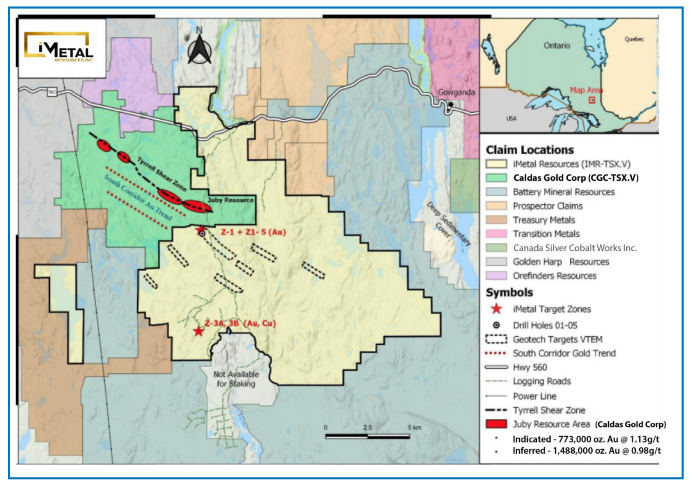Erie, Colo., has signed a novel agreement with a pair of energy development firms on how to manage shale gas extraction operations within its city limits.
The memo of understanding between Erie, located west of Denver and atop the Niobrara shale formation, and EnCana Oil & Gas and Anadarko Petroleum could serve as a model for future agreements between Colorado cities and energy companies.
The MOUs, effective Sept. 3, are the first agreements in Colorado that include best management practices that supplement the rules and regulations of the Colorado Oil and Gas Conservation (COGCC) Commission.
It may be a workable solution for the state, which has been embroiled in a tug-of-war with local governments for the past year, over which jurisdiction has the authority to regulate the industry.
Matthew Lepore, director of the COGCC, said the terms of the MOUs will be included as a condition of permit approval -- provided companies submit those MOUs with their permit applications -- and will be enforced by the state.
The MOUs require the companies to maximize equipment and wellhead setbacks from occupied buildings and residences; notify landowners within one-half mile of any new drilling before it starts; prior to drilling, to provide the city with a summary of planned operations, including traffic management, dust, noise and light mitigation, and site reclamation; utilize steel-rimmed berms around tanks and separators instead of sand or soil berms; used closed-loop drilling systems to minimize the need for holding ponds; and other conditions.
The MOUs also prohibit the use of benzene, diesel, and other chemicals in fracking operations, some of which are known carcinogens. A 2011 National Oceanic and Atmospheric Administration study found some of those chemicals to be 10 times higher in Erie than in Pasadena, Calif., and several times higher than in Houston, Texas, which led to the town's six-month moratorium on new drilling.
The town is home to hundreds of drilling operations and approval of the MOU lifts a six-month moratorium on new oil and gas operations.
The decision to lift the moratorium rankled some locals and Erie Rising, a local anti-fracking group, which has been campaigning to maintain the moratorium until a scientific consensus is reached on the operations' impacts on public health. The group claims drilling operations have polluted the air and caused respiratory illnesses and other health problems.
Mayor Joe Wilson feels the MOUs are the best solution for Erie, and will foster economic growth while directing oil and gas operations to be as environmentally sensitive as possible.
He added that Erie, like other Colorado towns, doesn't have authority to prohibit oil and gas operations because those "are a statewide concern, which means local governments can't make regulations that trump state law, period."
Erie's path to regulating oil and gas operations varies from other Colorado cities located in the Niobrara formation.
Longmont was the first city to attempt to use city land ordinances to control drilling operations. The city passed new set of land-use rules on July 24. Six days later, Colorado Attorney General John Suthers sued the city, saying the rules infringe on state regulations.
Before the Longmont City Council voted to update its land-use regulations, it had been notified by the Attorney General's office of state concerns regarding the city's proposed regulations, specifically its water quality regulations and a ban on development in residential areas.
An April 27 letter from AG John Suthers urged Longmont to not adopt its own water-quality rules and instead work cooperatively with the COGCC to "insure that local interests are addressed. Additionally, the COGCC is willing to consider an intergovernmental agreement with the City addressing further water sampling as a condition of approval for any well permit issued in the City."
Regarding Longmont's ban on oil and gas development in residential areas, Suthers wrote that "local governments generally may not forbid that which the state has explicitly authorized."
Other areas of concern cited in the state's lawsuit include riparian setbacks of at least 150 feet (the COGCC doesn't impose minimum setbacks); wildlife protections ("a patchwork of county-level regulations would inhibit what the General Assembly has recognized as a necessary activity and would impede the orderly development of Colorado's mineral resources"); and regulations addressing horizontal drilling, hazardous materials, and other issues.
Commerce City, a northern suburb of Denver and home to a Suncor oil refinery that processes 90,000 barrels per day, has dealt with oil and gas operations a little differently than Longmont and Erie.
Mayor Sean Ford told Prospects that his city employs a land-use plan that requires companies to forge an extraction agreement with the city that addresses concerns such as setbacks and noise and air monitoring. However, there is nothing in the extraction agreements or the city's land-use codes that would "be pre-empted by the state," Ford said.
The city amended its land-use development code for oil and gas development -- first drafted in 2009 -- on July 2, to reflect Commerce City's current concerns about oil and gas development.
The amendments require an extraction agreement between the city and energy developers; prohibit injection wells, disposal wells, and wells within floodplains; require traffic mitigation plans and waste management plans; require odor and dust containment, noise mitigation, and public notification of operations within one-half mile of a site; and compliance with state and federal regulations.
"We believe a layered approach to oil and gas development balances community protections with individual rights," Mayor Ford said. "In amending our existing rules, the city sought to remain within the regulatory framework of the state and to be consistent with the recommendations of Gov. Hickenlooper's oil and gas task force."
Penelope Kern
Energy Prospects West


























































